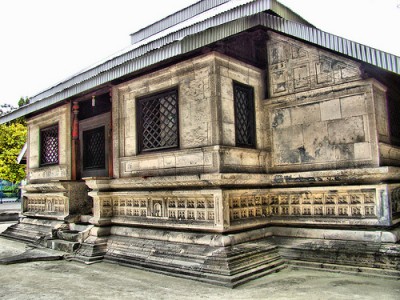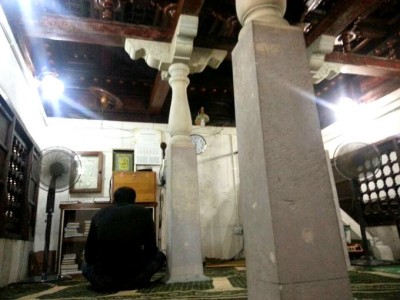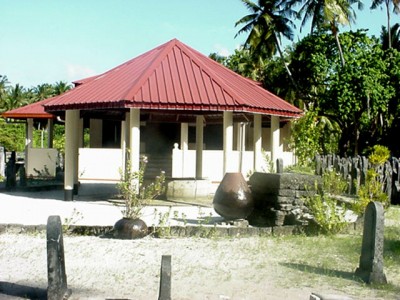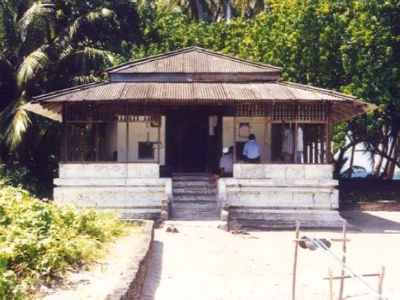This article first appeared on Dhivehi Sitee. Republished with permission.
More than half of the Maldivian population is under the age of 25 and, with over a third of the population aged between 18-35, the Maldives has one of the most youthful populations in the world. This weekend around 200 of them assembled on the desert island of Anbaraa for an overnight music festival.
All elements that any reasonable person expects at a modern event of the sort were present—great DJs, young people up for a good time and, unsurprisingly, party drugs. On Friday night, when most revelers were at the peak of their enjoyment, a Maldives Police Service (MPS) team in riot gear raided the island. Apparently they were in possession of an arrest warrant, issued by one of many farcical courts that comprise the so-called judiciary.
The MPS asked no one’s permission to get on the island, respected no laws, followed no due procedure. Police statements have made it clear they were aware of the plans for the music festival, and also that it would take the form of a rave. They made no move to stop it from going ahead. When they raided the island on Friday night, they were fully aware of what they would find — a bunch of young people in a highly vulnerable state — and proceeded to assert their supremacy on them as aggressively as possible.
The MPS could not have acted more triumphantly if they had managed to bust the world’s biggest drug cartel. According to eye-witness accounts, they threw smoke grenades onto the unsuspecting revelers, barged into their tents without permission, searched their personal possessions without their knowledge, and handcuffed everyone deemed ‘guilty’ before holding them in custody for 14 hours without the right to counsel.
Once they had been humiliated, and by some accounts several beaten up in custody, it was time to turn the whole affair into a media circus. Pictures of various partygoers were splashed across computer and television ‘news’ screens as if they were members of a newly busted paedophile gang deserving the most forceful of today’s naming and shaming techniques.
The worst of the humiliation was reserved for the women, as can be expected of the misogynistic society the Maldives has become today. First came the reports across the entire media spectrum—from the mainstream to the most obscure—that several of the women had been found ‘naked’, ‘nude’, ‘everything bared’, etc. Pictures of laughing policewomen in headscarves marching the young female partygoers in handcuffs and sarongs appeared on all print and online newspapers.
As it turned out, all reports the women were naked were total lies, engineered to belittle and humiliate ‘the weaker sex’ as much as possible. The women were made to wear sarongs to court — not to cover their nudity, but to cover up the lie that none of them were naked. Wearing shorts, apparently, is now tantamount to being naked in the tropical island ‘paradise’.
The treatment of these young people is a supreme example of the hypocrisy that defines modern Maldives. It is one of the worst kept secrets of Maldivian politics that most of the Maldivian cabinet, and a substantial number of parliamentarians in the Majlis all drink alcohol and/or take recreational drugs. Several government Ministers not only drink but also facilitate parties and raves for young people they know. On the more sleazy side of things, several do so with the goal of getting sexual favours from young people in exchange for the illegal substances provided.
Quite apart from the disgusting hypocrisy of those in power, and separate from the widespread heroin addiction that has afflicted an entire generation of Maldivian youth since the 1990s, it is also a fact that social drinking and indulging in recreational drugs are common among young Maldivians, especially in the capital Malé. In recent years the use of party drugs such as ecstasy, and even more recently LSD too, have increased as it has in most cities across the world.
Meanwhile, in a country where alcohol is only meant to be available to tourists who holiday in the exclusive resort islands, it is commonplace for copious amounts of alcohol to be sold and bought in and around Malé every weekend. Government officials—and police—are fully aware of this. Many, in fact, have a share in the profits, which are invariably huge. Young people who want a drink are forced to pool their resources and shell out as much as MVR2000 approximately (US$130) for a bottle of alcohol, regardless of its make, size or contents. Where else do the bottles come from except tourism industry tycoons with a license to import them?
Today several of these tycoons are also running the government and the country. To pretend they are unaware of how much their profits are pumped up from selling alcohol to young Maldivians is a sham that any thinking person can see right through. Yet they keep up the façade so that a) they can keep making profits, and b) continue claiming that such things do not happen in a ‘100 percent Muslim country’ like the Maldives.
Fact of the matter is, Muslim or not, drinking alcohol and taking recreational drugs are as normal among a large section of the Maldivian population as it is in any other 21st century society in the world. To believe that what happens in the rest of the globalised world does not happen in the Maldives is the height of idiocy. Being such a small country with deliberately weakened cultural and historical roots has made us more, rather than less, vulnerable to global influences than most other countries. Nowhere is this more evident than in the number of Maldivian youth who have found themselves bending to the radical Islamist winds that have swept across the globe since the beginning of the century.
If we are to be honest, we have to admit that the big black burugas that so many Maldivian women have come to wear in the past decade have as little affinity with our culture and religious practises as the hot pants the women at the rave were wearing – yet the former is not just embraced but almost forced upon everyone as ‘the right thing’ while the other is criticised as ‘alien’ and even criminal.
Yes, the use of drugs are against the law. But since man began to live in societies, there has been no place on earth where youth have not bent the law for their fun and enjoyment. Their infringements—if they cause no harm to society as a whole—need to be dealt with concern and understanding, not handcuffs, brutality, and long sentences. Drug laws are meant to punish traffickers and dealers and to stop dangerous substances from becoming a menace to users and society.
Young people at a rave on a desert island, whether tripping or not, poses no threat to society whatsoever. To treat the Anbaraa revelers as criminals, to set out to publicly shame them, and to punish them with imprisonment demonstrate nothing but intolerance and ignorance. And the hypocrisy of those meting out such punishment, while happily indulging in worse behaviour themselves, boggles the mind perhaps even more than some of the substances said to have been available at Anbaraa could have.
All comment pieces are the sole view of the author and do not reflect the editorial policy of Minivan News. If you would like to write an opinion piece, please send proposals to [email protected]
 (0)Dislikes
(0)Dislikes (0)
(0)



